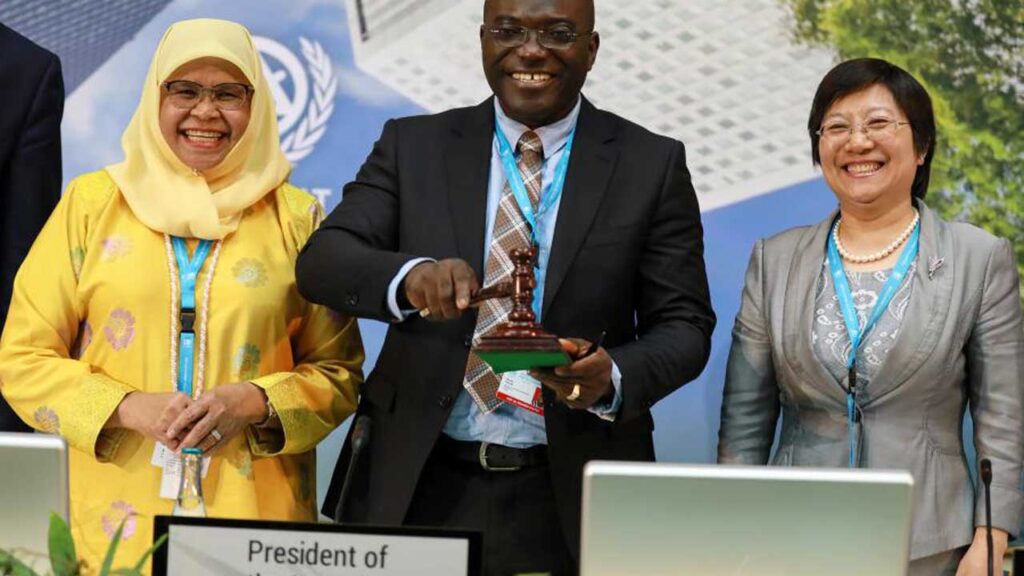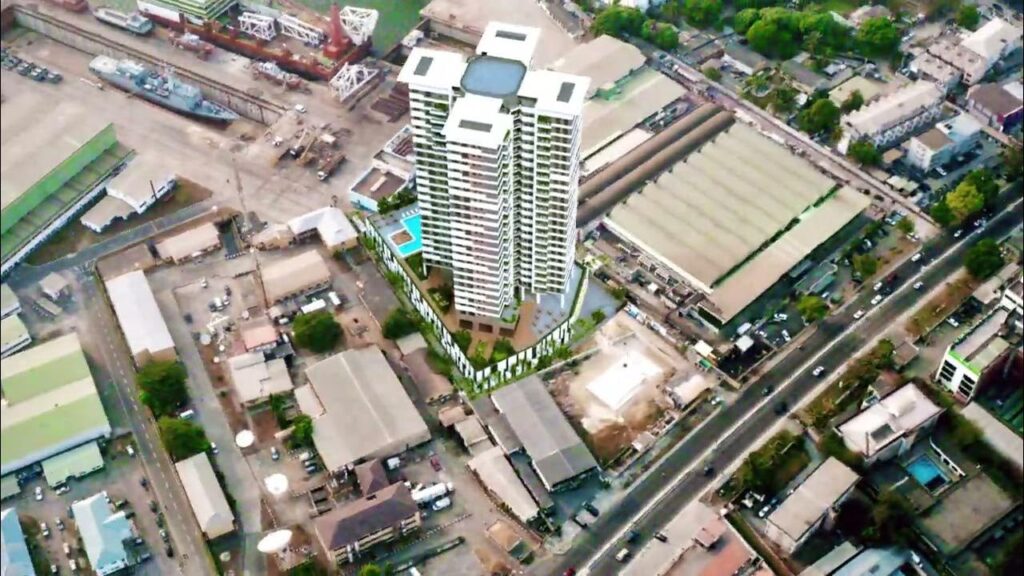
The delegates adopted resolutions that will tackle head-on the challenges of urbanisation and human settlements. They reaffirmed commitment to the New Urban Agenda, accelerating the transformation of informal settlements and slums by 2030, as well as strengthening UN-Habitat, and recognised the role of cities in addressing and responding to climate change.
With a total of 10 resolutions pledging renewed commitment to tackling key issues relating to the growing role of cities on the global agenda, the second Session of the United Nations Human Settlements Programme (UN-Habitat) Assembly (UNHA2) ended in Nairobi, Kenya at the weekend, after delegates unanimously approved the Ministerial Declaration.
The assembly was held amid a haze of uncertainty cast by the global economic crisis that is compounding the existing global urban crisis, as well as the looming threat from growing poverty and the world’s changing climate. Delegates consist of 52 ministers, 37 deputy ministers, 3,433 in-person and 2,084 online attendees.
An elated Executive Director of the world’s premier city development agency Maimunah Mohd Sharif proclaimed, “UN-Habitat is back!” The assembly, as the highest global decision-making body on sustainable urbanisation and human settlements, convenes every four years and is composed of the 193-member states of the United Nations.
The Director, Urban and Regional Development, Federal Ministry of Works and Housing, Dr. Olakunle Akinola led the Nigerian delegation. It also comprises Chike Anikamadu (Deputy Head of Delegation), Ambassador Yusuf Yunusa (High Commissioner/ Permanent Representatives to UN-Habitat, Dr. Victory Jaja (Alternate Permanent Representatives to UN-Habitat) and Omotayo Adeoya.
The outcome set marching orders for the organisation over the next four years and paved the way for targeted funding for issues addressed by the resolutions. Through the resolution adopted on equitable financing and effective monitoring, Member States mandated the creation of a system for tracking the status of the implementation of assembly resolutions.
In the Ministerial Declaration, titled ‘A Sustainable Urban Future through Inclusive and Effective Multilateralism: Achieving the Sustainable Development Goals in Times of Global Crisis,’ ministers reaffirmed their commitment to the New Urban Agenda (NUA) and its implementation plan; welcomed the Sharm El-Sheikh Implementation Plan recognising the role of cities in addressing and responding to climate change, as well as highlighted the urgent need for cooperative action in this regard, within the mandate of UN-Habitat.
The countries committed themselves to advancing multilateral engagement and international cooperation to address urban crises, the need for adequate housing, localisation of the Sustainable Development Goals (SDGs) and the importance of integrated urban development through inclusive urban and territorial planning, multilevel governance, urban climate change adaptation and mitigation, response to natural disasters and sustainable finance approaches.
They also reaffirmed the important role of UN-Habitat as the UN focal point for sustainable urbanisation and human settlements and committed themselves to strengthening UN-Habitat.
The resolutions cover international guidelines on people-centered smart cities; accelerating the transformation of informal settlements and slums by 2030; World Cleanup Day; biodiverse and resilient cities; enhancing the interlinkage between urbanisation and climate change resilience; localisation of SDGs; adequate housing for all; urban planning and sustainable infrastructure; creation of a human settlements resilience framework and equitable financing and effective monitoring of the implementation of UNHA2 resolutions.

The plenary adopted five decisions that extend the strategic plan for the period 2020-2025 until 2025; set the date of the resumed UNHA2 for May 29-30, 2025 and approved a provisional agenda whose main operational element is approval of the Strategic Plan for the period 2026-2029; entrusted the Executive Board with the further development of the stakeholder engagement policy with a view to possible approval at the resumed UNHA2 in 2025.
Earlier, the delegates, at the high-level opening, stressed the role of UN-Habitat in driving a multilateral agenda to achieve the New Urban Agenda as an integral part of the 2030 Agenda for SDGs.
In a video address, UN Secretary-General, António Guterres, said the COVID-19 pandemic left more than half of the world behind in achieving the 2030 Agenda and to reverse this trend in time “we must fight for the future we want.”
Under-Secretary-General for Economic and Social Affairs, Li Junhua, said that UNHA2 discussions should facilitate the High-level Political Forum on Sustainable Development (HLPF) review of SDG 11 (sustainable cities and communities) and pave the way for the September 2023 SDG Summit to make the breakthroughs needed to deliver on the 2030 Agenda.
Also, UN General Assembly President, Csaba Kőrösi (Hungary), said cities are the epicenter of the planetary crises and urged for new, bold and innovative commitments based on scientific inputs, while the Executive Director, UN-Habitat, underscored that aspirations to keep global warming to 1.5°C can only be achieved if sustainable urbanisation is prioritised.
The Special Session on Climate Change and Migration in Urban Areas acknowledged that such crises compound in cities and human settlements, cautioning that poor planning can exacerbate vulnerability. The Session stressed the need for inclusive and effective multilateralism, sustainable urban planning and working with vulnerable communities to create resilient, equitable and prosperous cities.
UNHA2 also focused on the right to housing and the role of “inclusive and stronger multilateralism” in realising this aspiration. Echoing an assertion by Shipra Narang-Suri, UN-Habitat, that slow progress in advancing the right to adequate housing “is a structural failure of our systems to deliver on the most fundamental promise to humanity,” the discussions underscored that while a comprehensive international framework on adequate housing exists, stronger multilateral and inclusive platforms are needed to operationalise it.
The high-level panel included Bahrain’s Housing Minister, Kenya’s Permanent Secretary for Urban Development, UN-Habitat’s Executive Director and municipal leaders and high-level representatives from international development, housing funds and urban policy think tanks from, among other countries, Mexico, Canada, UK, France and the Philippines.













